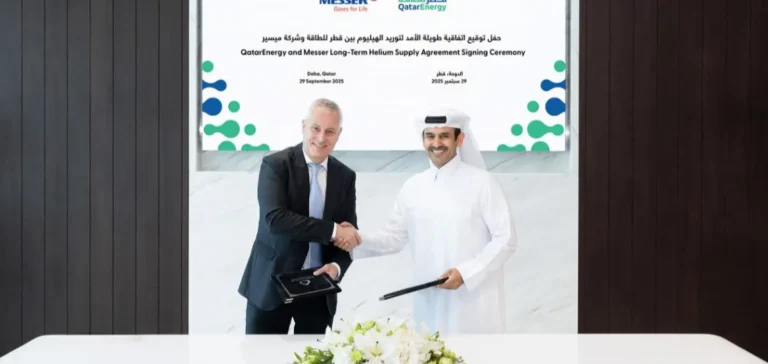QatarEnergy has signed a direct sales agreement with German industrial gases company Messer for the annual supply of 100 million cubic feet of high-purity helium. This contract marks the first direct cooperation between the two entities and represents a strategic step for Qatar’s helium export capabilities.
Production capacity concentrated in Ras Laffan
The helium supplied under this agreement will come from QatarEnergy’s facilities in Ras Laffan, located on the country’s northeastern coast. These facilities tap into the North Field gas reservoir, which QatarEnergy estimates can meet global helium demand for the next 30 years. When both plants are operating at full capacity, the state-owned company expects to supply approximately 25% of the world’s total helium output.
A tightening market facing rising demand
Helium is a rare gas used in a growing range of industrial and technological applications, including magnetic resonance imaging scanners, quantum computing, semiconductors, fibre optics and space exploration. According to a 2024 study by research firm IDTechEx, global demand could exceed 322 million cubic metres by 2035 due to its cryogenic and inert properties.
A strategic supplier for European industry
Messer, the world’s largest privately held producer of industrial gases, is strengthening its supply chain by securing long-term access to a critical resource for European industry. The agreement comes amid increased efforts to secure strategic resources, following recent volatility in energy markets.
QatarEnergy, which has ramped up investment in liquefaction and gas treatment infrastructure, continues to diversify its marketing channels beyond liquefied natural gas (LNG), consolidating its position in high-value segments.






















